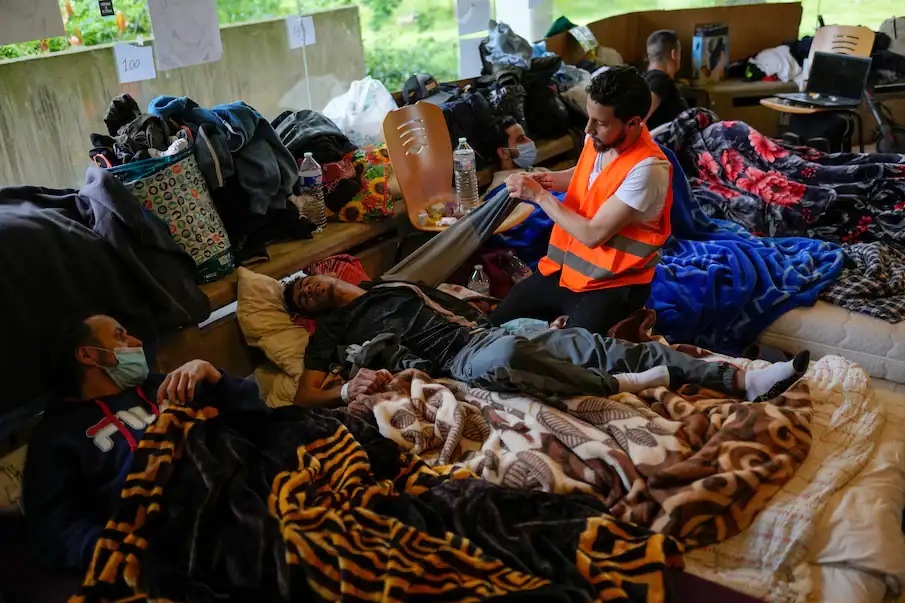|
Migrant hunger strike puts pressure on Belgian government
By Raf Casert and Sylvain Plazy | AP
June 30, 2021 Washington Post
BRUSSELS — A hunger strike by hundreds of migrants living in Belgium without legal permission is putting increasing pressure on a government coalition weighing the wellbeing of those involved against the need to stick to immigration and asylum rules.
The hunger strike started May 23 in two universities and a Brussels church, by migrants desperate to obtain legal residency papers to continue and improve their lives in a nation of 11.5 million where some say they have been working and living for a decade.
To highlight their desperation, some hunger strikers stitched their lips together this week, and only accepted small amounts of liquids through a straw. Estimates of the number participating range as high as 400 but Migration and Asylum State Secretary Sammy Mahdi has used a figure of about 200.
“I have started this, I have to do it till the end. I put my life at risk, I lost 15 kilos (33 pounds). I am able to lose another 15 (33 pounds) or 20 kilos (44 pounds) to be regularized,” said Yasser Medouni, a 26-year-old from Algeria who said he arrived in Belgium five years ago.
“All these actions have one goal: get regularization, show that we need documents. We don’t do that for nothing,” he told the Associated Press.
Mahdi has insisted he is seeking to quicken up and improve the whole application system for people seeking to stay in Belgium but refuses to budge when facing demands by the hunger strikers for their cases to be handled now.
“They say that there are 150,000 living here illegally, and the 200 people that decide to stop eating should be regularized individually? What would be the result? A week later you get 200, 2,000, 20,000 people who would do exactly the same.”
“That’s not the way to go about it,” he told VRT network.
But hunger strikers like Gajendra Gurung, a 40-year-old father of two from Nepal and who arrived in Belgium 11 years ago, want action now.
“Just give me a work permit, so I can work and give food to my (children), and they will grow,” he said.
Belgium, like so many other wealthy European nations, has had an ambivalent relationship with migration. Since the 1960s, many have been invited to come work and help build states across the continent.
Still, few were fully accepted in society and became the brunt of an often racist backlash when economies took a dip. Many of those on hunger strike now were not part of any legal program but have worked in the gray economy in the nation of 11.5 million where they have no social protection and are often at the mercy of unscrupulous bosses.
The French-speaking Socialist and Green coalition partners have called for a more flexible approach that could give the hunger strikers a better shot at obtaining the necessary papers, as tensions heighten among the seven coalition partners that have comprised the government since October.
Their government program is not specific on how to deal with such a migrant situation.
At the same time, the scenes at the three locations in Brussels look increasingly desperate, with some people unable to stand up because they have become too weak, further increasing the sense of urgency to come up with a solution.
|
